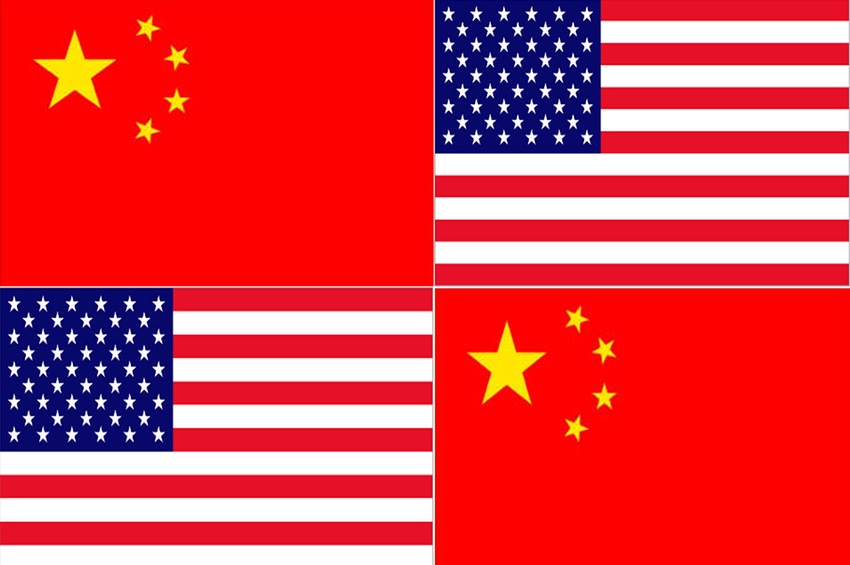China targets U.S. soybeans in second round of retaliations
Tariff of 25% on U.S. soybeans seen as nuclear option in ongoing tit-for-tat trade spat with China.

China came out swinging with another round of retaliatory tariffs early Wednesday morning -- with a new list of 106 products that includes a 25% tariff on soybeans -- in response to the Section 301 actions imposed by the U.S. regarding intellectual property. On Monday, China began instituting tariffs on 128 U.S. products, including pork, ethanol, fruit and wine, in response to President Donald Trump’s steel and aluminum tariffs.
The full list also includes wheat, corn, tobacco and beef. China’s imports of U.S. corn, wheat and tobacco totaled about $740 million in 2017, according to official customs data. U.S. beef data for the full year in 2017 isn't available because China's ban on U.S. beef was lifted midyear.
Emma O’Brien, Bloomberg market analyst based in Beijing, China, said including soybeans on the latest list is the “nuclear option.”
China imports $14 billion worth of soybeans every year from the U.S., using much of it to feed its growing pork industry. O’Brien noted that China is “cutting off their own nose to spite their face.”
It also shows that China is not messing around in the tit-for-tat trade spat. “To go straight in on the second round of salvos on soybeans is very interesting,” O’Brien added.
She noted that China may be trying to come out with “all guns blazing” in an effort to stop a de-escalation. So far, the proposed tariffs by China haven’t been massive, “but this could be a game-changer and may be what turns the table on this whole thing,” O’Brien said.
Arlan Suderman, chief commodities economist for INTL FCStone Financial, said Wednesday’s “rapid escalation by China from $2.75 billion in goods to $50 billion in goods covered by the retaliatory tariffs could be considered a ‘hail Mary’ approach by China – a move of desperation to ratchet up the political pressure to end this battle as quickly as possible.”
China’s list included items that will inflict real pain on the Chinese economy when or if they are implemented. “Remember, this list has not yet been implemented, and China likely hopes that it never has to implement it,” Suderman noted.
Suderman said China does not want to pay $2.50/bu. more for soybeans, because “this would hurt crush/feed margins there, slowing meat production and raising the price for meat and stimulating food inflation.”
The U.S. Department of Agriculture announced sales in the past 24 hours of 4.7 million bu. of soybeans to China and 11.9 million bu. to unknown (also believed to be China).
“China cannot afford for this trade war to be going strong this fall,” Suderman said. The new list is seen as applying political pressure to get Trump to back down, and China appears to be hoping that the U.S. will back down, he said.
“They cannot afford the impact that a $2.50/bu. tariff on soybeans would have on food inflation long term, in my opinion,” Suderman said. “Their economy isn’t strong enough for that.”
Bryce Knorr, market analyst for Farm Futures, said the soybean commitments to China are already down 18% for the year without any tariff in place. “This will only exasperate what is already a weak trade situation with China,” he noted.
Soybeans plunged on the news overnight, dropping 45 cents/bu. and almost breaking a February low after a surprisingly strong finish in recent days.
American Soybean Assn. president and Iowa farmer John Heisdorffer said that drop in future prices is already costing U.S. soybean producers. “At a projected 2018 crop of 4.3 billion bu., soybean farmers lost $1.72 billion in value for our crop this morning alone. That’s real money lost for farmers, and it is entirely preventable,” he said in a statement.
Heisdorffer said there is still time to reverse the damage, explaining, “The Administration can still deliver for farmers by withdrawing the tariffs that caused this retaliation. China has said that its 25% tariff will only go into effect based on the course of action the Administration takes. We call on President Trump to engage the Chinese in a constructive manner — not a punitive one — and achieve a positive result for soybean farmers.”
U.S. beef producers had only recently seen a restoration of sales to China after being shut out since 2003. Kent Bacus, director of international trade and market access for the National Cattlemen's Beef Assn., said although unsettling, the group wasn't surprised to see beef as a target for retaliation, as it is an inevitable outcome of any trade war.
"This is a battle between two governments, and the unfortunate casualties will be America’s (cattle producers) and our consumers in China. The Trump Administration has until the end of May to resolve this issue. We believe in trade enforcement, but endless retaliation is not a good path forward for either side,” Bacus said.
About the Author(s)
You May Also Like




